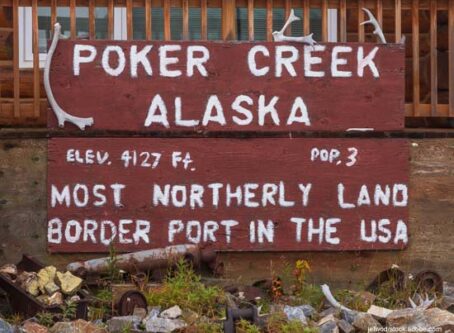Company in business for a few months denied application for H-2B truckers
A transportation company that has been in operation for only a few months has been denied its H-2B application to hire foreign truck drivers.
The U.S. Department of Labor’s Board of Alien Labor Certification Appeals recently upheld a decision denying Curry, Inc.’s bid to hire foreign truck drivers through the H-2B program. The Pawnee, Ill.-based construction materials transportation company had been in business for only three months before filing the application.
Curry filed an application to hire 10 H-2B truck drivers on Jan. 4. The company claimed it had a “peakload” need for the drivers from April 1 to Dec. 15. According to U.S. Citizenship and Immigration Services, a peakload need is established when an employer needs to supplement regular permanent workers “due to a seasonal or short-term demand and that the temporary additions to staff will not become a part of the petitioner’s regular operation.”
To justify its need for H-2B truck drivers, Curry claimed it requires fewer drivers in the late fall and winter, since cold weather in the Midwest makes pouring concrete difficult.
Consequently, demand for transportation of construction materials decreases. Preparing for peak season during upcoming warmer months, the company stated in its application that it had been unable to hire enough U.S. drivers to supplement its year-round full-time staff.
The certifying officer for Curry’s case requested supporting documents, including:
- Payroll reports and the number/pattern of deliveries over the course of three previous calendar years (2021-23) that identify the total number of truck drivers employed, total hours worked and total earnings received
- A summarized monthly list of the previous calendar year and up-to-date of current year that indicates the number of truckloads that leave the main worksite for deliveries to other locations for this temporary seasonal truck driving need
- Contracts signed with clients and a summarized report from clients supporting temporary need that occurs from April 1 to Dec. 15
However, Curry could not produce the requested payroll reports and other documents, since it has been in business only since October. The company used payroll data from October to January to show a spike in demand in November and December and a significant decline in gross pay from December to January. Curry argued that construction companies “race to finish projects before cold weather impacts production” before reducing operations at the very end of the year. Although payroll data before October was nonexistent, the company argued that one can infer the downward trend at the end of the year aligns with reduced demand for workers in the winter.
Further justifying its needs for H-2B truck drivers, Curry stated that it is difficult for a new business to break down cargo-specific details.
The company argued that peakload need in its industry extends beyond the number of truckloads. Therefore, the certifying officer should consider its circumstances as a new business with limited information. The company pointed out in its application that in a weather-dependent, regularly changing industry, it must make subjective predictions and judgments. With that in mind, it argued, the Department of Labor should not second-guess its business decisions.
In February, the certifying officer denied Curry’s applications for H-2B truck drivers, noting payroll data did not indicate the requested occupation, total number of workers and total hours worked. The company appealed the decision, arguing it disregarded its status as a new business and requested documents that were unreasonable and unattainable.
On March 11, a Department of Labor appeals board affirmed the decision. The administrative law judge determined that payroll data did not show how many truck drivers Curry employed full-time in the months it was in operation or any assessment of how it determined that 10 additional drivers were needed. Specifically, the payroll records did not distinguish between full-time and part-time workers and did not identify the occupations of the workers.
Additionally, Curry’s sales summaries did not break down work performed weekly or monthly, making it difficult to assess the timeframe or volume of work. No past or future contracts were submitted to evaluate which months might need more truckers, let alone 10 additional drivers specifically. LL
Related stories:









